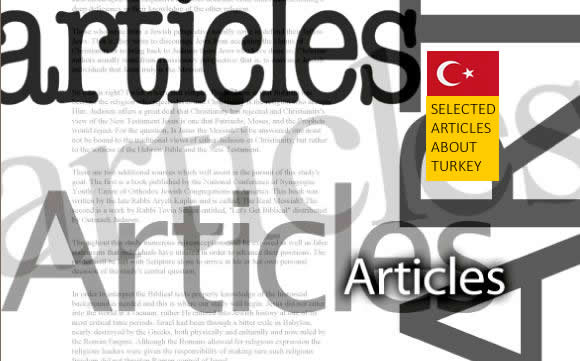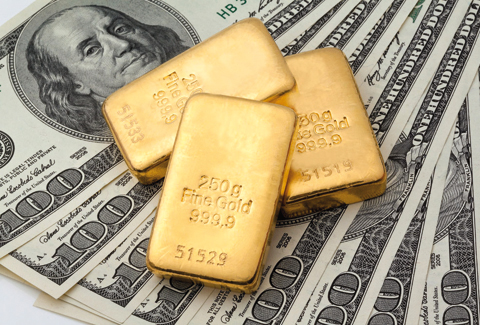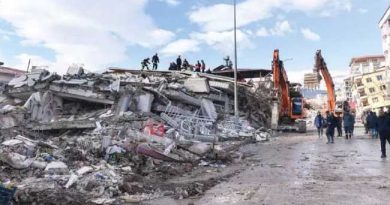Article Scan – March 03rd: Whatever is the matter with Erdogan?
Whatever is the matter with Erdogan? (Mahir ZEYNALOV)
A revolutionary and popular Turkish leader who catapulted Turkey in the past decade by reforming its economy and significantly improving its democracy has become just another Middle Eastern despotic leader that relies on state resources to crush dissent.
A nation that many Arabs touted as a role model for their post-revolution countries is now being led by a paranoid leader who is staging ruthless assaults on his critics, burying rule of law to save his regime, and destroying democracy to establish tyranny of the majority.
He never misses a chance to condemn behaviors of his critics and uses every opportunity to exploit anything that could be wooed by his supporters, including those that are denied as false. Daily insults against large segments of society and hateful and polarizing rhetoric have become routine for Recep Tayyip Erdoğan. For him, rules of war don’t exist.
What happened?
Erdoğan is a former student of late Prime Minister Necmettin Erbakan, whose Islamist government was ousted by the military in 1997. Erbakan is the founder of the National View, a Muslim Brotherhood-like Islamist political movement. Erdoğan had to leave that movement for his future political ambitions.
Later, Erdoğan established his own party and met with influential Turkish cleric Fethullah Gülen to seek his support. He promised Gülen he has changed and that his political party will lobby for EU membership, less government and more democracy. Erdoğan got what he needed: the crucial backing by Gülen.
READ MORE: http://english.alarabiya.net/en/views/news/world/2014/03/04/Whatever-is-the-matter-with-Erdogan-.html
‘No media independence, no democracy’ (Yavuz BAYDAR)
The momentum in achieving constitutional reform was lost on Dec. 18, when the Justice and Development Party (AKP) caused the regrettable dissolution of the Constitutional Reconciliation Commission. This move, which followed the first wave of a graft investigation, has certainly pushed Turkey to the edge, because everyone of sound mind knows that neither the overall tension and polarization — fiercely fuelled by Prime Minister Recep Tayyip Erdoğan — will disappear, nor will there be any conclusion to the limping Kurdish peace process. No major issue that has been kept waiting has any chance of settlement.
This wisdom was once more underlined in a progress report that was prepared by the European Parliament’s rapporteur on Turkey, Ria Oomen-Ruijten. No matter how intensely Ankara argues that politics is business as usual — “normal” — in Turkey, there is no longer any confidence in policies designed and conducted under the strict personal supervision of Erdoğan.
Nor is anyone who is a part of heavyweight European circles convinced that the AKP government is under the assault of a “parallel state.”
READ MORE: http://www.todayszaman.com/columnist/yavuz-baydar_341118_no-media-independence-no-democracy.html
Something is rotten in Turkey (Mustafa AKYOL)
These days, the most exciting leisure activity for millions of Turks is to get on the Internet every night and wait for the next scandalous “tape” to go online. Because almost every night, a new alleged wiretapped phone conversation between the most powerful men in Turkey, such as Prime Minister Tayyip Erdoğan, is exposed. Every audio file goes viral instantly and leads to heated discussions and angry protests on social media. Some even go out on the streets to voice their dismay – before getting water cannoned or gassed by the police.
If they are authentic, these audio files reveal a very dirty state in every sense of the word. There is corruption, bribery, intervention in legal processes and even in the elections within football teams. There are dozens of examples of government pressure on the media, or pressure on individuals by the media.
Meanwhile, these very exposures reveal something else, too: Somebody has been collecting and archiving them, and is now revealing them for public consumption just weeks before the upcoming local elections. Moreover, while some of these wiretappings seem to have a legal basis (they were recorded with a court order due to the corruption probe that was launched on Dec. 17), others seem to have been executed illegally. All this confirms the long-held belief that Turkey is the home of a STASI-like “wiretapping republic,” which eagerly spies on its citizens.
READ MORE: http://www.hurriyetdailynews.com/something-is-rotten-in-turkey.aspx?
Turkey boxed in by Russian moves in Crimea (Semih IDIZ)
The dangerous standoff in Ukraine between Russia and the West is reminding Turks once again of their volatile neighborhood, where unexpected developments can alter the geostrategic equation unexpectedly, leaving Turkey facing difficult choices and decisions overnight. These events are also showing just how interconnected developments in this part of the world are when superpower rivalry is concerned.
Rising tensions between the United States and Russia over Ukraine will most likely make the Syrian crisis more intractable and increase Turkey’s Syrian headache while Moscow positions itself more firmly behind Syrian President Bashar al-Assad, keeping in mind its naval base in Tartus and military ties with the Baathist regime.
The developing situation in the Crimean peninsula also has potential domestic ramifications for Turkey due to the close ties of kinship between Turks and Crimean Tatars. This issue can add fuel to an already tense political environment in Turkey, where the government is fighting serious corruption charges.
The opposition is likely to use the situation in Crimea to hit at the ruling Justice and Development Party (AKP) by alleging passivity by the government as the tide turns against the Tatars, many of whom have relatives in Turkey.
Turkey today has no legal claims over Crimea, of course — even if it was once part of the Ottoman Empire — other than a moral concern for the welfare of the Tatars. “The Khanate of Crimea” was lost to Russia in the war of 1768-1774.
Crimea, however, continues to hold an important part in Turkish nationalist lore, being the birthplace of some of the most prominent ideologues of 20th-century Turkish nationalism and Pan Turkism; these include Ismail Gaspirali (Gasprinski) and Yusuf Akcura.
Read more: http://www.al-monitor.com/pulse/originals/2014/03/turkey-russia-crimea-ukraine.html#ixzz2v4xm8pMI
05.03.2014





